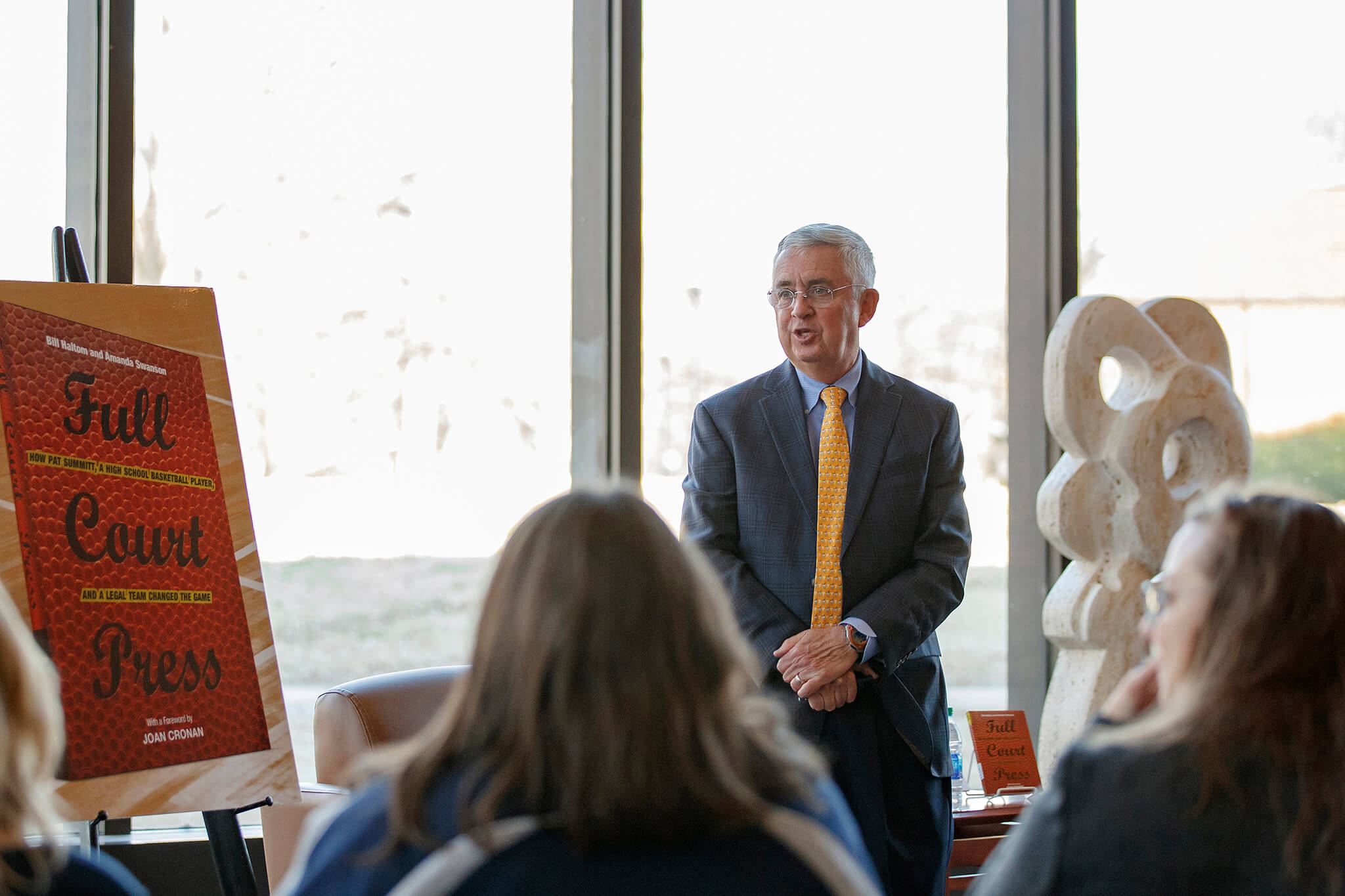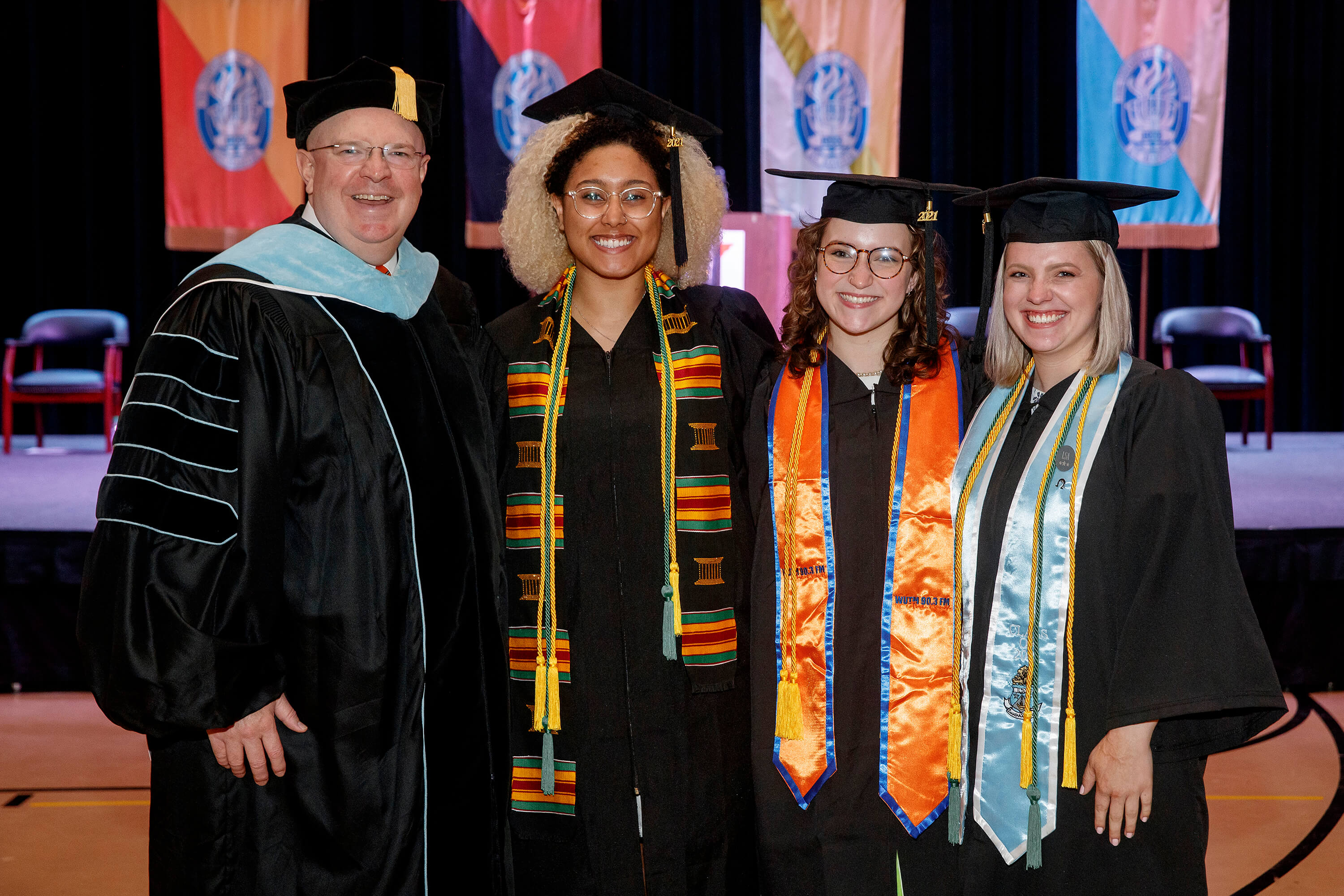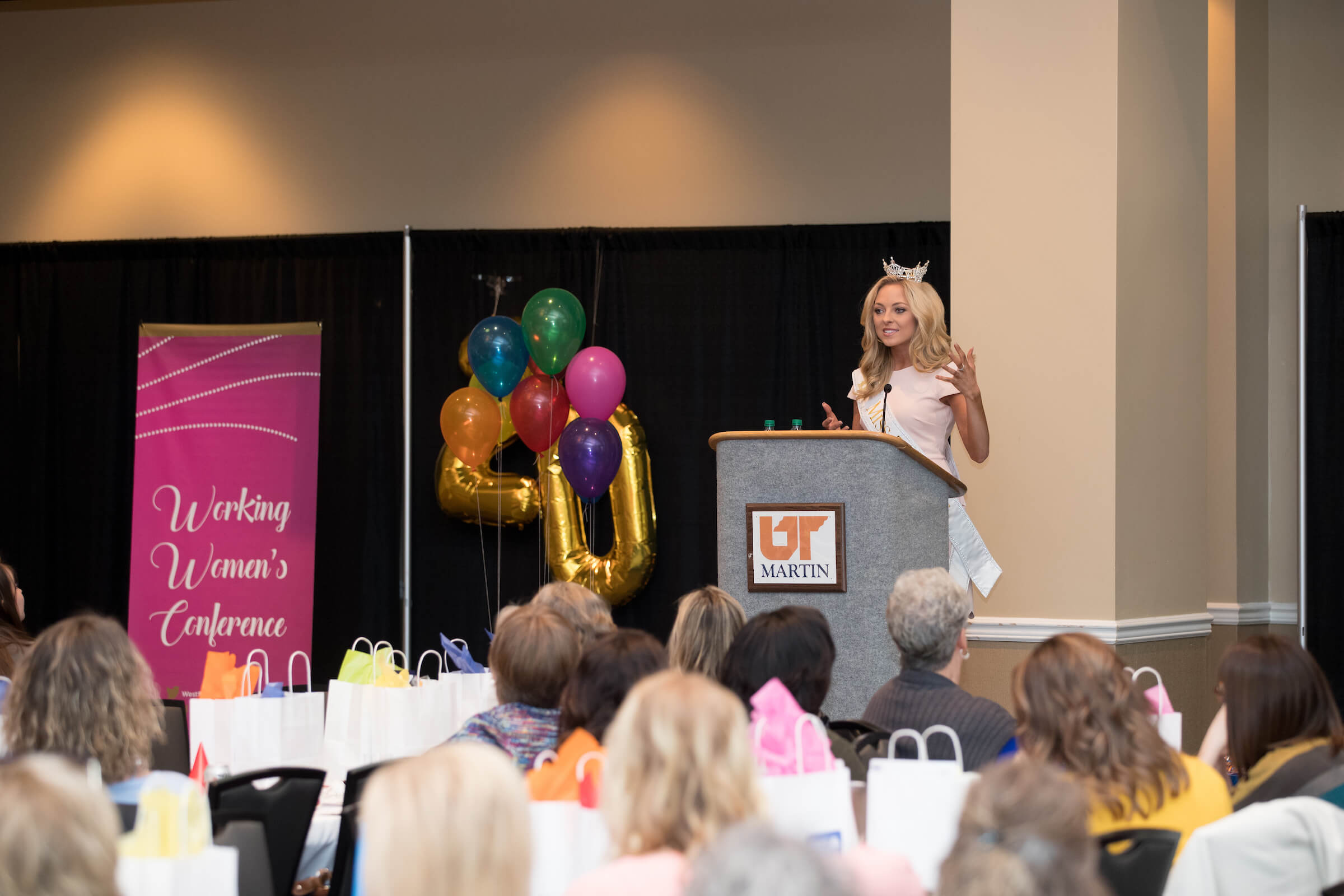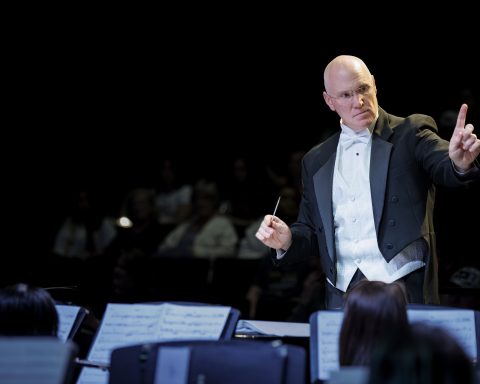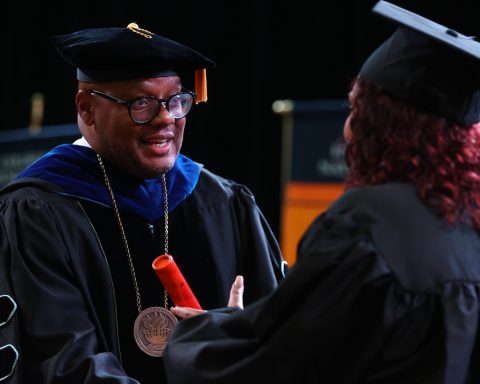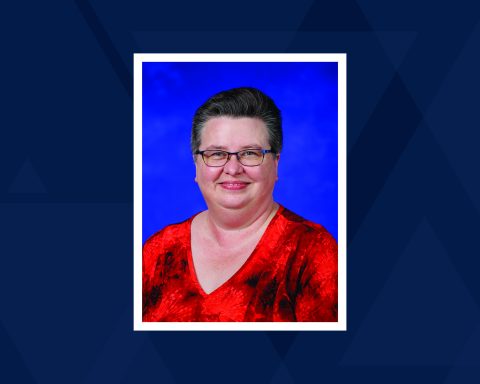Bill Haltom, co-author of “Full Court Press,” discussed the history of women’s basketball and several key figures who changed the game during a book signing event Jan 24 at the University of Tennessee at Martin Paul Meek Library.
“This is a story of courageous women,” said Haltom. “It’s the story, first of all, of a courageous young woman named Victoria Cape who was 15 years old from Oak Ridge, Tennessee, and wanted to play basketball. But she didn’t want to play half-court; she wanted to play full-court basketball. Believe it or not, prior to the lawsuit of Cape v. TSSAA, girls playing high school basketball in Tennessee were not allowed to play a full-court game. It was considered dangerous for sweet little girls.”
After Cape’s father became upset that his high school daughter was only allowed to play half-court basketball, he sought the legal counsel of Ann Mostoller and Dorothy Stulberg, both graduates of the University of Tennessee School of Law. Mostoller and Stulberg filed a lawsuit against the TSSAA on Cape’s behalf and went to trail in 1976, calling star witness Pat Head (Summitt), a UT Martin alumna and newly-appointed head coach of the Tennessee Lady Volunteers who would go on to become the winningest college basketball coach in the sport’s history.
Summitt, only 26 years old at the time, had been coaching full-court college basketball for three years when she participated in the Cape trial. According to Haltom, she was not called to testify on the ability of female players to play a full-court basketball game. She was instead asked to testify to damages that would be incurred by female high school athletes if the rules of the game were not changed in their favor.
“She prophesied what was coming for women in this country. She said to the judge, ‘Because of Title IX, in the years to come, women are going to get scholarships to college to play sports. They’re going to be student-athletes. … Victoria (Cape) can’t be a part of this. I can’t recruit to play college basketball a young lady who has never run a full-court game. … I’m going to have to go out of state,’” said Haltom. “On the basis of her testimony, Judge Robert Taylor ruled in (Cape’s) favor and granted the injunction that would require the TSSAA to change their rules.
Change did not ultimately happen until years later following several rounds of legal appeals by the TSSAA, but Cape’s lawsuit opened the door for full-court women’s basketball in high schools across the state and the country.
“If Pat had not testified in that case, if it had not been for the courage of Victoria Cape and the courage of her lawyers … that victory would not have changed the game for my daughter and for generations of young women,” finished Haltom.
He then took questions from audience members, many of whom attended UT Martin with Summitt and remember her as a personal friend and Pacer athlete.
Haltom’s book is available for purchase in the UT Martin Barnes and Noble Bookstore.
###

